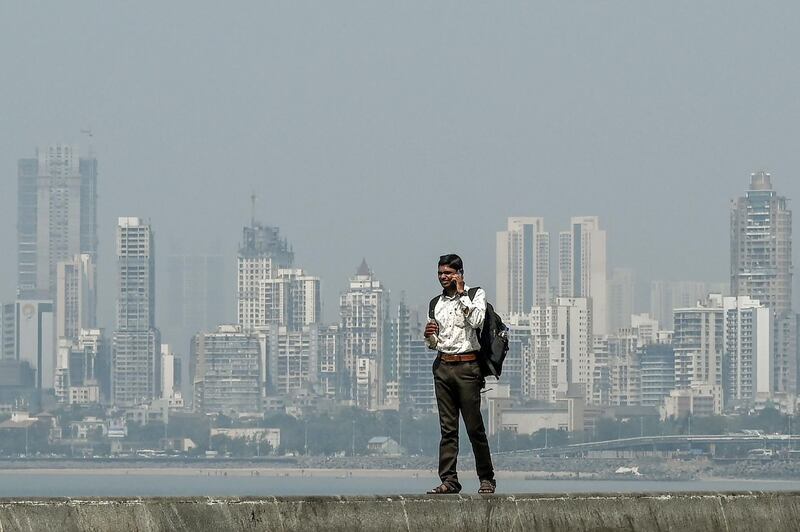When India's Finance Minister Nirmala Sitharaman unveiled the annual budget last month, confusion and panic broke out among the Indian expatriate community in the UAE.
The budget for the financial year, which begins on April 1, states that Indian citizens who were not paying tax in any other country would be considered resident Indians, making them liable for taxation.
This left many workers in the UAE, who have long enjoyed tax-free income, questioning whether this meant they would now have to pay taxes on their earnings.
"This proposed change created a huge uproar amongst the non-resident Indian community," says Maulik Doshi, the senior executive director for transaction advisory services at Nexdigm based in Mumbai.
A clarification was swiftly issued by the government the next day, explaining that “bonafide workers including in the Middle East” would not be taxed on the income they were earning in the country where they were working.
But the new rule does affect Indians who are trying to avoid paying taxes and is part of a wider strategy to crack down on tax abuse by tightening a system that has let many individuals fall through the net, experts say.
"The issue of stateless persons has been bothering the tax world for quite some time,” according to the Indian government's budget document. “It is entirely possible for an individual to arrange his affairs in such a fashion that he is not liable to tax in any country or jurisdiction during a year. This arrangement is typically employed by high-net-worth individuals to avoid paying taxes to any country or jurisdiction on income they earn.”
The Indian government led by Prime Minister Narendra Modi has taken a series of steps to clean up the economy since it first came to power in 2014.
These have included a shock demonetisation move in 2016, when the government suddenly banned the two highest-value banknotes in India overnight, which partly targeted people who were hoarding cash on which taxes had not been paid.
There was also the introduction of a central goods and services tax the following year, designed to streamline a previously convoluted taxation system which imposed varying levies across the country's different states. The government has also been tracking down tax evasion by wealthy people through Swiss bank accounts, for example.
Such measures have become all the more critical as India's economy has slowed over recent quarters, with gross domestic product growth slumping to an almost seven-year low of 4.7 per cent in the quarter to the end of December. This is well below the government's target of achieving growth of above 8 per cent as Mr Modi aspires for India to become a $5 trillion (Dh18.36tn) economy by 2025. In a country with a population of more than 1.3 billion, Mr Modi said there are only 15 million people in India who pay taxes. New Delhi has been falling short of its tax collection targets and it wants to collect more funds to boost its coffers, needed for vital spending on infrastructure, for instance.
Mr Doshi says with the recent move in the budget, "it seems that the intention is to capture Indian citizens who have a significant business interest in India but plan their affairs in a manner that they remain non-resident and thus avoid paying tax on their overseas income".
He adds that “similarly, due to the current provisions governing tax residency in India, various Indian citizens can avoid taxes".
NRIs enjoy a favourable tax status because they generally only have to pay tax in their home country on any earnings they may accrue in India. But their global earnings are not liable to tax in India.
In a further step to get more people to pay tax, the budget also states that for someone to qualify as an NRI, the person has to be outside of India for a much longer period of 240 days, whereas previously the requirement was only 180 days, or six months. This comes into effect at the beginning of the next financial year on April 1.
There is still widespread confusion over the exact implications of the new rules, and accountants and lawyers have been scrambling to interpret the language and regulations, which many industry insiders describe as “ambiguous”.
“In its clarification, the government has clearly said that under this proposed provision, income earned outside India by an Indian citizen who becomes deemed non-resident of India shall not be taxed in India unless it is derived from an Indian business or profession,” says Anurag Jhanwar, the co-founder and partner at Fintrust Advisors, an investment advisory in India.
“This, however, does not seem to reflect the contents of the finance bill completely, leaving scope for further clarity or incorporation of modification in the bill.”
Mr Jhanwar says the bid to challenge tax abuse is “aimed at citizens who shift stays to avoid tax in India”.
Hardik Dave, who owns accountancy company H Dave & Co in Mumbai, says the measures “clearly indicate the intention of the government to bring to tax those who have been using the loophole to avoid taxes for income earned in India using the veil of their residency”.
Yet the move could have knock-on effects.
“What is still looming is declaration of foreign assets held by NRIs outside India, which may lead to a scenario of undue hassles being faced in the form of scrutiny and assessments, opening a Pandora’s box of what is to be treated as liable to be taxed in India and outside India,” says Mr Dave.
Some NRIs who may not even be directly affected by the rules are still concerned.
Mohammed Asaria, the managing director of Range Developments, a Dubai company which facilitates citizenship by investment in the Carribean, says that the new tax rules have set off alarm bells among many NRIs, and he is capitalising on this opportunity.
“Many are worried about the risk of a citizenship-based taxation,” says Mr Asaria.
“Practitioners are saying that the [Indian] government has been studying the US system where individuals are taxed based on citizenship rather than residency. I believe this created a shockwave – the consideration is there for NRI taxation.”
His company offers citizenship in Grenada in the Caribbean through investment of at least $220,000 in property in the country. Mr Asaria says he saw a surge in interest in this option almost immediately after the announcement of the budget from people who will either be directly affected by the new rules or those who fear that they may be at some stage in the future.
“Many NRIs have come to us looking to obtain a second citizenship, renounce their Indian passports and obtain an OCI [overseas citizen of India] card,” he says. “We have a person walking into the office every day [since the budget was announced].”
Countries including Malta and Cyprus offer similar citizenship programmes, but giving up their citizenship is a step that many Indians would find too drastic a step, Mr Asaria says.
“There are challenges. It’s not a perfect solution for everyone.”







